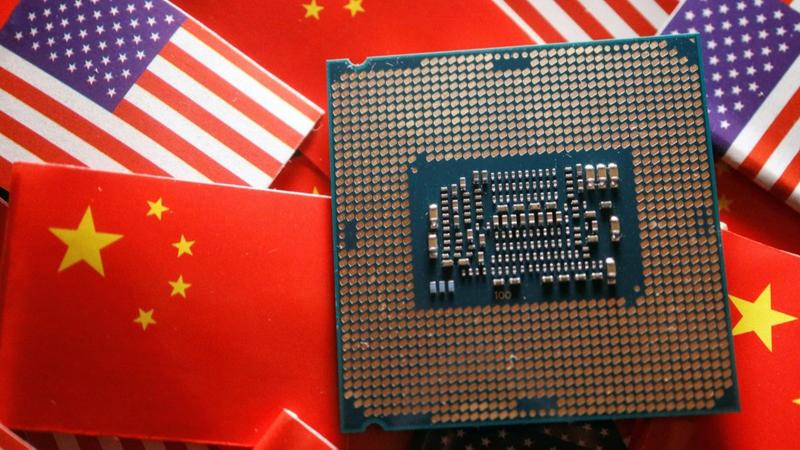Published 14:10 IST, January 14th 2025
How US Government’s New AI Chip Rule Impacts Indian, Global Tech
The new framework bars companies such as Nvidia, Intel, AMD, and Qualcomm from selling chips outside of the US.

The US government has proposed a new regulation for exporting advanced computer chips essential for building artificial intelligence-based products. The new framework, which comes during the final days of Biden’s government before President-elect Donald Trump assumes office, bars companies such as Nvidia, Intel, AMD, and Qualcomm from selling chips outside of the US.
The new addition to the CHIPS and Science Act passed in 2022, will impact about 120 countries, including India, Mexico, Israel, and Switzerland. Still, the biggest concern behind the new regulation is to prevent China and Russia — the United States’ biggest adversaries — from using AI chips to “safeguard the most advanced AI technology.”
“If it’s China and not the United States determining the future of AI on the planet, I think that the stakes of that are just profound,” said White House national security advisor Jake Sullivan. Commerce Secretary Gina Raimondo said that the framework “is designed to safeguard the most advanced AI technology and ensure that it stays out of hands of our foreign adversaries but also enabling the broad diffusion and sharing of the benefits with partner countries.”
Under the new framework, the US government will mandate acquiring a license for exports of advanced Graphics Processing Units (GPUs), crucial for developing infrastructure that facilitates the training of foundational AI models. However, there will be some relaxations, under which chip companies can export small quantities of GPUs as that would require government notification instead of a license.
Is China a target?
The US government has, however, not listed the said partner countries that will benefit from the new framework, but its focus on China and Russia may also bring its allies under the ambit. According to analysts, the US government — which had already restricted exports to its adversaries — may expand its scanner to include the Middle East and Southeast Asia. US officials have emphasised concerns about data centres established in these nations, as they are utilised by Chinese firms to develop AI models using technology that cannot be imported from China.
Will India be impacted?
Sullivan’s speech on AI and National Security at the White House underscores the importance of building capable and responsible AI and associated infrastructure “to advance our national security.” He has explicitly talked about the investments China has made in bolstering its position as an AI development hub. According to a senior administration official, Australia, Belgium, Britain, Canada, Denmark, Finland, France, Germany, Ireland, Italy, Japan, the Netherlands, New Zealand, Norway, South Korea, Spain, Sweden, and Taiwan are among the countries exempted from the country caps on AI chip exports.
However, there is no mention of India. That means India, as a close US ally, could purchase up to 50,000 GPUs — 10,000 if there are government-to-government deals in place based on whether the buying country’s renewable energy and technological security goals match with those of the US.
Since India shares the anti-China stance with the US, the government may also allow India to gain some level of access to the advanced AI technology being developed by American chip companies.
China and EU’s response
The Chinese government, which recently increased its science and technology budget by 10 per cent, has criticised the new regulation under the CHIPS and Science Act, accusing the Biden administration of stifling the international trade flow and curbing innovation. On the other hand, the European Union has said the new regulation could put stress on transatlantic tech collaboration. “It is in the US economic and security interest that the EU buys advanced AI chips without limitations,” said EU officials. However, several European Union countries are exempted from the restriction.
Pushback from chip companies
The US government’s new regulation on AI chip exports has received severe criticism from the world’s biggest AI chip company, Nvidia. Ned Finkle, Nvidia’s vice president of government affairs, warned the Biden administration that implementing such restrictions could harm US leadership in the AI sector and create bureaucratic roadblocks for the marketing of US-produced semiconductors, computers, and software.
“While cloaked in the guise of an ‘anti-China’ measure, these rules would do nothing to enhance US security,” Finkle said, adding that the new rules “would control technology worldwide, including technology that is already widely available in mainstream gaming PCs and consumer hardware.”
Oracle, another major AI chip manufacturer, has also expressed concerns that the new regulation will be bad for the global tech industry, which relies on collaborations and exchanges of technologies.
Updated 14:10 IST, January 14th 2025



